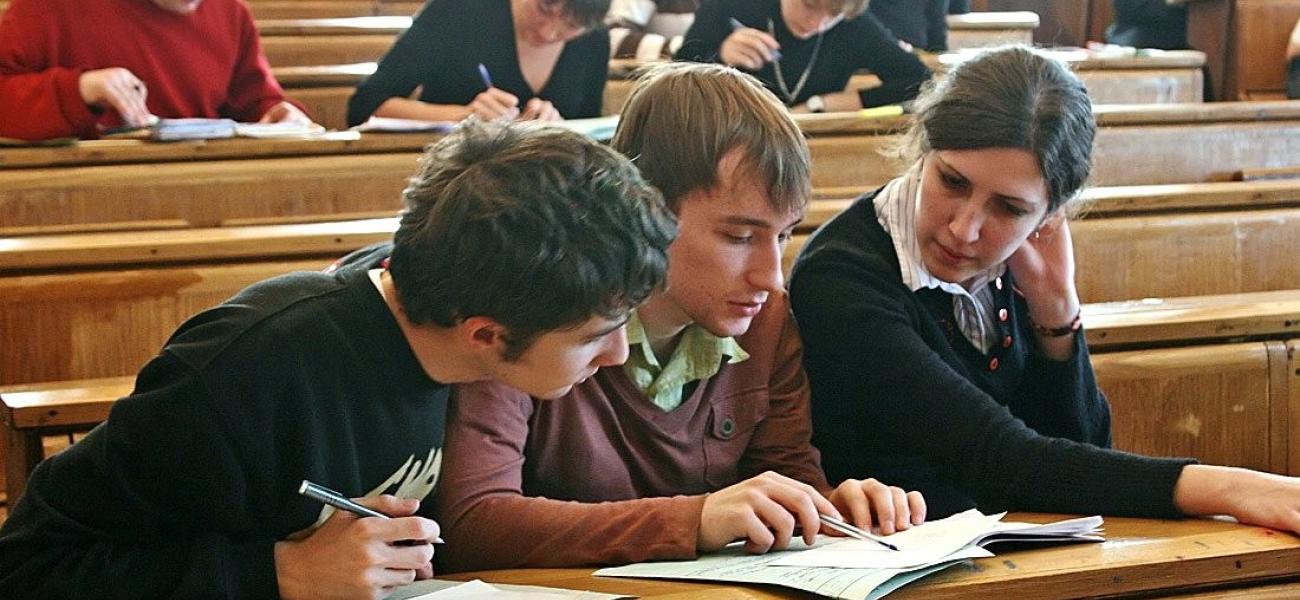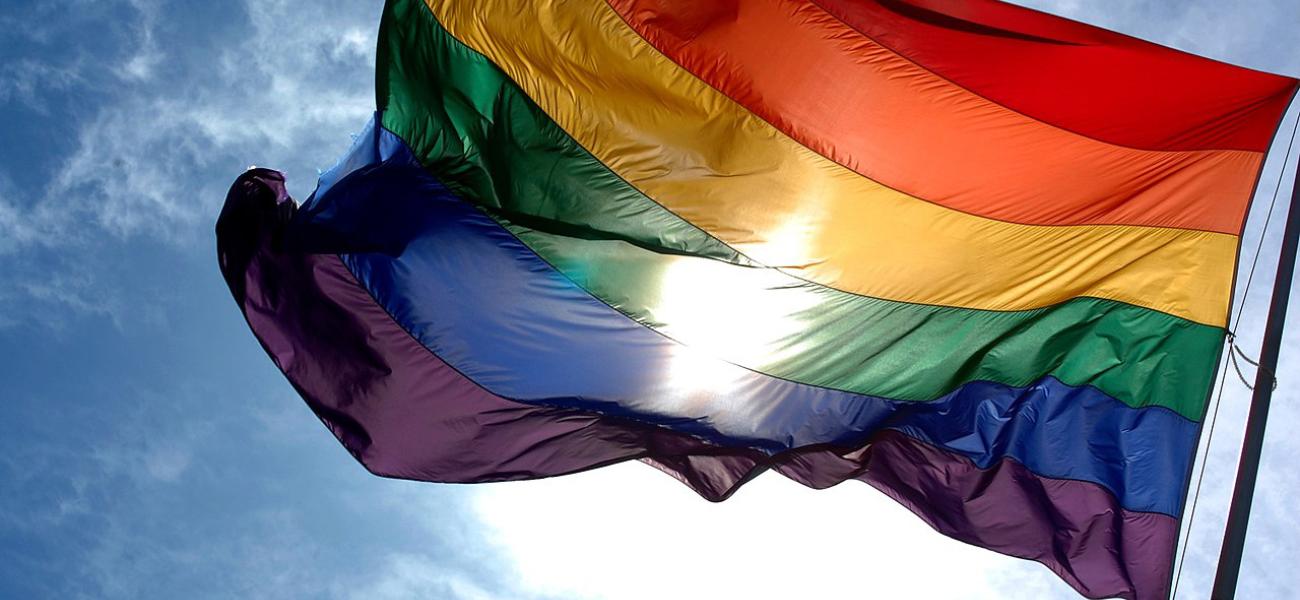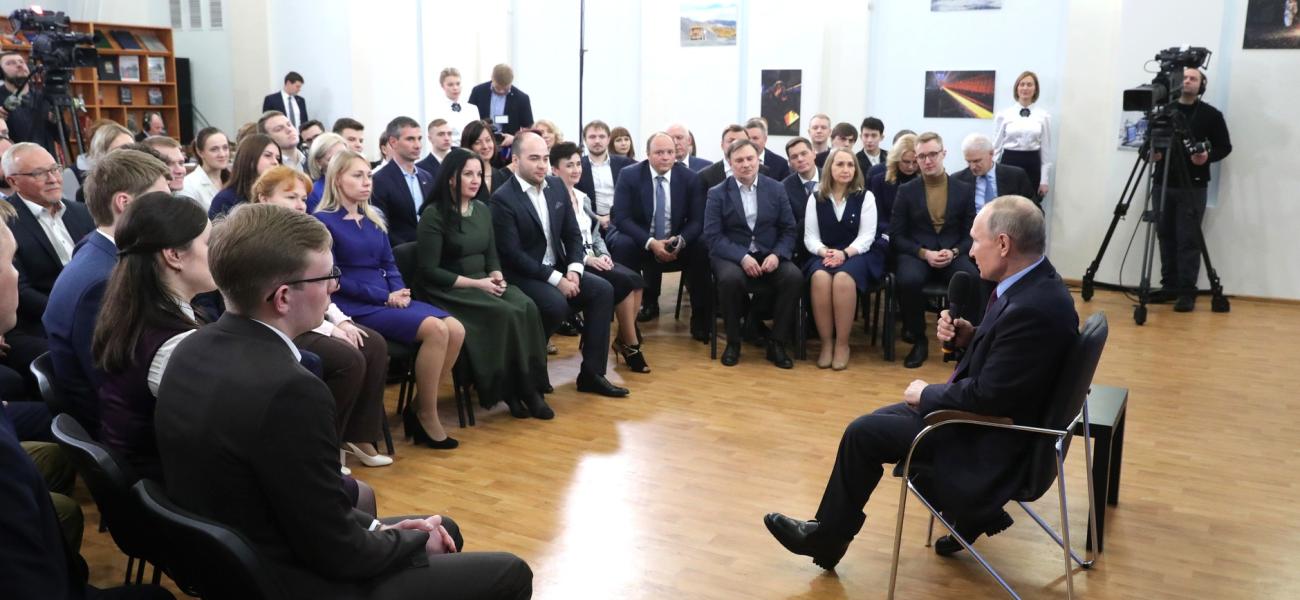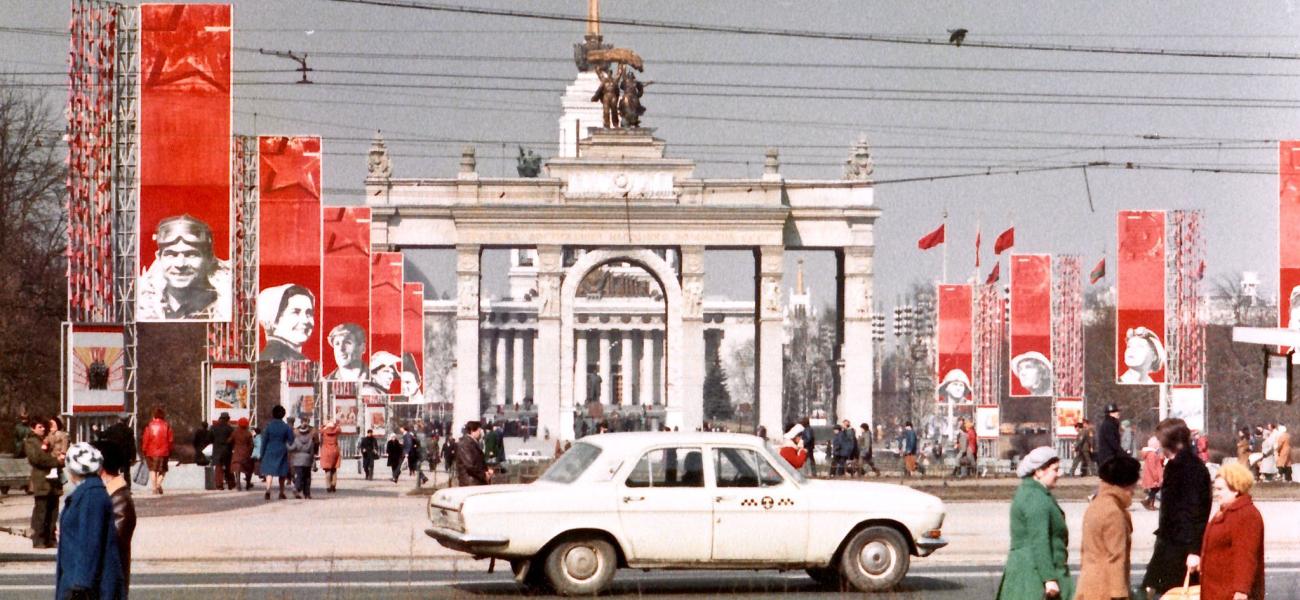Almost half of Russians expect layoffs within their household in the coming months and almost one-third have already had someone in their household recently fired, according to an April 26-28 poll by Russia’s most respected independent polling organization, Levada Center. Moreover, more than a third of the poll’s respondents said they or their family members have already experienced pay cuts (see table 1). In contrast, when surveyed by Levada in October 2019, only 14 percent of Russians reported recent layoffs in their household, and 27 percent were expecting to lose their jobs in the near future (see table 1). Since October, the shares of respondents suffering from pay cuts and wage arrears have all increased dramatically. Respondents experiencing wage delays increased from 13 percent in October to 25 percent in April, while the share of those who saw their wages cut went from 14 percent to 32 percent in the same period of time.
In the Thick of It
A blog on the U.S.-Russia relationshipPoll: Majority of Young Russians Distrust NATO, Don’t Consider Russia a European Country
A majority of young Russians distrust NATO more than any other organization and disagree that Russia is a European country, according to a recent poll conducted by Russia’s independent Levada Center and Germany’s Friedrich Ebert Foundation.
These organizations’ research on the opinions of Russia’s “Generation Z” (aged 14 to 29) revealed that 80 percent expressed a strong to moderate degree of distrust toward NATO (Graph 1). While the organizations’ report does not speculate on the reasons for young Russia’s distrust of NATO, they note that institutional trust “requires recognition of an institution’s status and its significance as a symbol in maintaining social integrity and exerting influence on various areas of public life and its rank in the system of collective values.” This suggests that Russia’s youth does not recognize the status or symbolic significance of NATO or the other international organizations that enjoy the least amount of trust according to the survey. The Levada Center/Friedrich Ebert Foundation poll also revealed that 58 percent of young respondents rather or strongly disagree with the notion that Russia is a European country (Graph 2). This distrust of the West is mirrored in the general Russian population, but to a lesser degree. A January 2020 Levada poll found that just over half of respondents, 52 percent, agreed that Russia has cause to be wary of NATO, and 37 percent have a negative view of the EU.
US-Russia Deconflicting 75 Years Ago: Flares and Friendly Fire at the Elbe
This month 75 years ago, U.S. and Soviet forces linked up on the Elbe River in Germany at the end of the European phase of World War II. The anniversary prompted current leaders of the U.S. and Russia to transcend the frosty relations between their countries and issue a rare joint declaration that cited the meeting as “an example of how our countries can put aside differences, build trust and cooperate in pursuit of a greater cause.” What the declaration did not say, however, is that the April 25, 1945 link-up featured some deliberate flouting of military orders that led to friendly fire. On that day, U.S. Army and Red Army servicemen took turns violating orders issued by their commanders to ensure a safe and orderly meeting at the Elbe River, including instructions to fire green (U.S. Army) and red (Red Army) flares and a ban on straying outside zones designated for patrol (U.S. Army), according to an account based on first-hand recollections of that meeting’s participants published in Russia’s Kommersant daily.
Most Russians Believe Problem of Sexual Harassment Exaggerated or Not a Problem
More than half of Russian men and women believe the problem of sexual harassment is either exaggerated or is not a problem at all, according to the Levada Center’s March 2020 poll. As many as 51 percent of women believe this problem is exaggerated, and 8 percent don’t see it as a problem.
As for men, 60 percent believe the problem is exaggerated and 11 percent don’t see it as problem at all. Additionally, older respondents were less likely to see sexual harassment an issue, according to the poll (see charts below).
Many Russians Support Harsh Measures Against ‘Deviants,’ But Less Than in the Past
Russians’ tolerance of gays, lesbians and other individuals the Levada Center refers to as people “whose behavior differs from commonly accepted norms” has increased over the years, but the latest survey by this independent pollster still shows that almost every fifth Russian supports the “liquidation” of same-sex couples. In 1994, 22 percent of respondents said that gays and lesbians should be “liquidated,” while 29 percent said they should be left to themselves. In 2020, fewer respondents, 18 percent, supported harsh measures against homosexuals, and more respondents, 32 percent, were in favor of leaving them to themselves (see Table 2).
Other “deviant” groups are also not looked on kindly by some Russians. For instance, 15 percent of Russians polled by Levada in March said they think drug addicts should be “liquidated” and 9 percent said the same of feminists (see Table 1). However, in 1989, more than double the number of respondents, 31 percent, said they were in favor of eliminating drug addicts (see Table 3). Also in 1989, 30 percent of those polled supported the “liquidation” of prostitutes, a number that has decreased by more than two-thirds to 9 percent in 2020 (see Table 4).
Russians See Putin as More of a Champion of the Oligarchs, Polls Show
Russians have come to think that President Vladimir Putin represents the interests of oligarchs above everyone else, according to the latest Levada Center poll. Thirty-eight percent of respondents in the March 2020 national survey said Putin is a champion of the oligarchs, a perception that has been rising since 2001. This is the first time oligarchs have overtaken “siloviki"—members of Russia’s so-called power agencies—as the top group whose interests Putin represents, which 37 percent of respondents chose in the 2020 poll (see Table 1). The shift is remarkable, given the previously popular view that Putin, a former KGB agent, upon becoming president, was observed soon putting the interests of security, intelligence and defense agencies first. (In fact, a smiling Putin told a meeting of the Federal Security Service top brass less than a fortnight after becoming acting president of Russia: “A group of FSB colleagues dispatched to work undercover in the government has successfully completed its first mission.”)
Third on the list in Levada’s most recent poll are government officials and bureaucrats, with 28 percent of respondents saying Putin represents their interests. The middle class, heads of large enterprises and ordinary people have hovered in the middle of the pack since 2000, with 18 percent, 17 percent and 16 percent, respectively, in the most recent poll. Directors/CEOs of large enterprises rank fourth on the list of groups Putin represents, according to the March 2020 poll. The share of Russians who hold that view has declined from 25 percent in 2017 to 17 percent in 2020, but it is still higher than the share of Russians who believe Putin is representing the interests of all Russians. The view that Putin is a champion of all Russians “without exception” has waned over the past three years. That view peaked at 17 percent in 2016- 2017, but then shrank by more than half to a mere 9 percent in 2020. While Putin is now seen more as a champion of the oligarchs than the siloviki, most Russians still believe Putin relies most upon the latter in his rule. Forty-six percent of respondents in 2020 hold that view (see Table 2). Oligarchs and government officials trailed behind with 37 percent and 27 percent, respectively.
The share of Russians who are in a state of permanent fear of a world war has declined somewhat since 2018, but it continues to exceed the share of those who have no such fear at all by almost 100 percent, according to the Levada Center, Russia’s respected independent pollster, which has been polling Russians about their fears since the mid-1990s. As of March 2020, 40 percent of Russians polled responded that they live in “constant fear” of a world war, compared to 42 percent in 2019, 46 percent in 2018 and 19 percent in 2012 (see table 2). Levada’s polls also show that in March 2020, fear of a world war was the second-largest concern of Russians surveyed (see table 1).
Latest New START Numbers Show US, Russia Remain in Compliance With Treaty Limits
The U.S. State Department on April 1 released new figures on compliance with the New START Treaty as reported by the U.S. and Russia. The numbers show that in March 2020, Russia declared 1326 deployed warheads (1426 in the previous update in September 2019), 485 deployed delivery systems (513 in September) and 754 total delivery systems (757 in September).
The U.S. in March 2020 declared 1373 deployed warheads (1376 in September), 655 deployed delivery systems (668 in September) and 800 total delivery systems (also 800 in September). The reduction in Russian numbers was probably caused by the decommissioning of single-warhead Topol (SS-25 Sickle) ICBMs, according to Pavel Podvig.
How much do Russians miss the USSR and how many of them would like Russia to emulate Soviet ways?
The Levada Center has been tracking answers to these questions for 28 years and its latest poll shows 65 percent of Russians regret the disintegration of the Soviet Union. Although this number has decreased by 1 percent from the previous year’s data, this response still represents a significant increase from a low of 49 percent in 2012 (See Table 1). Three-quarters of Russian respondents agreed to some extent that “the Soviet epoch was the best time in the history of our country, with a high level of welfare and opportunities for common citizens.” Such a strong fondness for the Soviet epoch is especially remarkable given that the percentage of Russia’s adult population with concrete memories of the Soviet Union keeps decreasing—about 35 percent of Russia’s current population was born since 1991 according to U.N. estimates.
From Polar Bears to Nuclear Weapons, US and Russia Still Talk (Even If It’s Past Each Other)
A popular talking point for many watchers of U.S.-Russian relations is to warn that reduced communication between the two countries, caused by the enduring animosities between Moscow and Washington, are increasing risks of a misunderstanding that could cause the world’s two nuclear superpowers to stumble into war. The experts, such as Sam Nunn and Ernest Moniz, certainly have a point. The less Washington and Moscow communicate, the greater the risk of misinterpreting each other’s actions in a way that could lead to a conflict, which could ultimately escalate into a nuclear war. You would be surprised, however, how much the U.S. and Russia still communicate both on government and non-government levels in spite of the animosities. At least that’s the impression I got when I looked into it, compiling a list of such communications. From checking on each other’s strategic nukes to co-managing polar bear populations, the U.S. and Russia are still talking to each other, even though they might be talking past each other.











